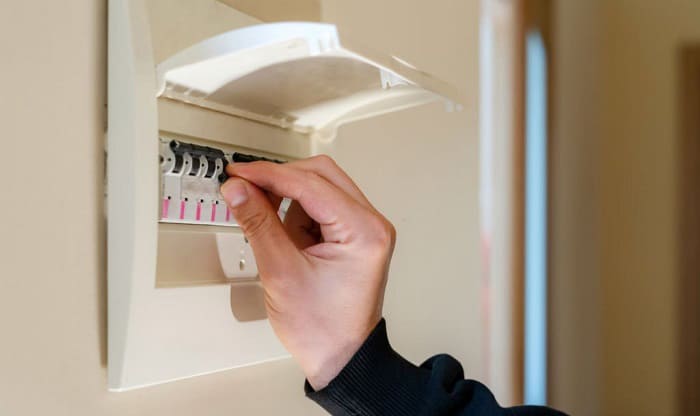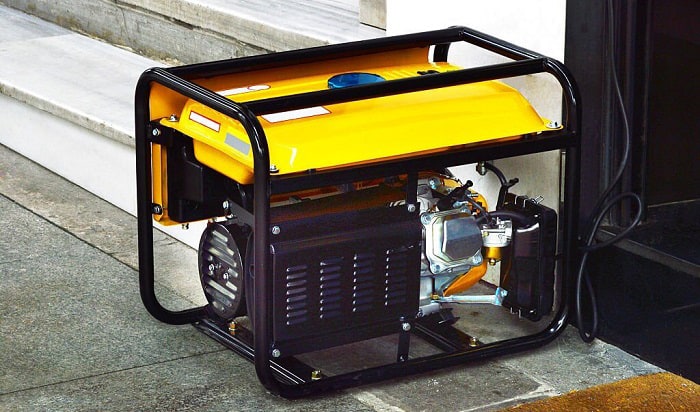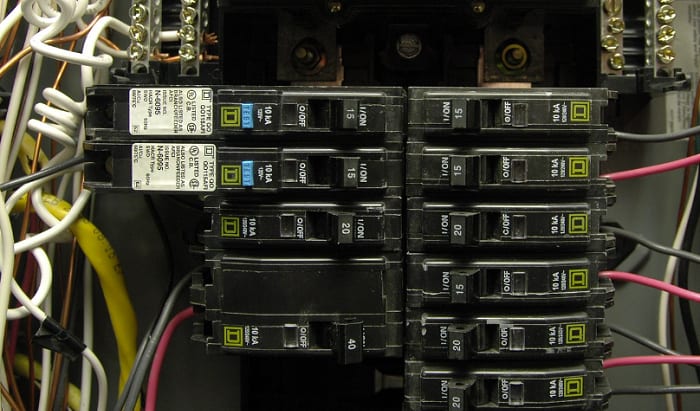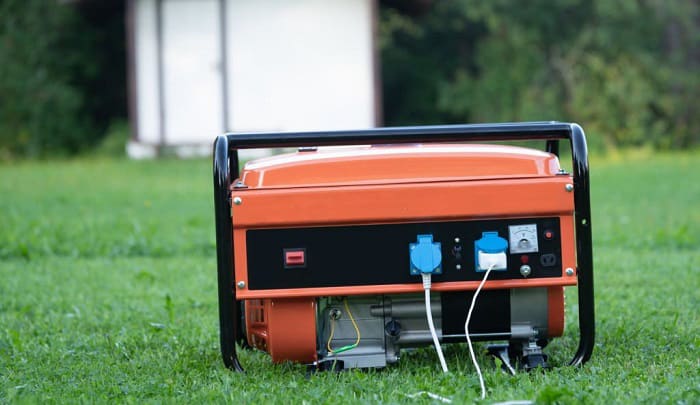A generator is capable of providing electricity despite moments of blackouts. This is why such devices are considered heaven-sent inventions.
However, running a generator may prove to be difficult for homeowners who have no prior experience in handling it. Among the main questions raised by homeowners is should you turn off main breaker when running generator.
Electricians generally recommend shutting down the main breaker when operating this power backup as a general safety measure for your home’s electrical system.
Table of Contents
- Generator Circuit Breaker on or Off?
- What is Backfeeding?
- More About Transfer Switches
- Do You Have to Turn Off the Main Breaker When Using a Transfer Switch?
- What Happens to a Generator When the Power Comes Back on?
- Is It Bad if Power Restored but Generator Still Running?
- General Dos and Don’ts in Operating a Generator
- Conclusion
Generator Circuit Breaker on or Off?
Is it ok to turn off main breaker before using generators? Yes, and don’t let other people tell you that you shouldn’t do so.
Just make sure to shut off the appliances connected to it first, since you don’t want them to produce a power surge when electricity comes back on. Plus, abrupt outages can lead to computers and similar devices requiring resets.
Additionally, the concern of “backfeeding” electricity to the main grid is mitigated when you turn off the main breaker. The article’s next section delves deeper into what electrical backfeeding is.
What is Backfeeding?
According to electricians, backfeeding simply refers to the act of plugging the generator into an appliance or outlet in order to power the property.
Connecting a running generator to your home’s electrical system without the use of transfer switches and other safety measures is dangerous and reckless. It places not only your property at risk of a fire but also endangers other people.
- To start with, backfeeding should not be done as it could fry the electrical circuits and appliances of other houses connected to the same power network.
- Likewise, irresponsibly connecting a working generator to your residential outlets could also electrocute linemen working on the grid. This is why hooking generator to breaker box without any safety mechanisms is illegal.
Now, to prevent backfeeding from happening, you should install a transfer switch so that the electricity produced by the generator doesn’t flow through the household wiring that eventually connects to the main local grid.
Evidently, to use a generator at home requires the utmost attention to safety to prevent untoward electricity-related accidents from transpiring.
More About Transfer Switches
When you use a generator to power a house, you should have some electrical components to ensure safety.
Chief among them is the transfer switch – said by electricians to be the most important component in ensuring the safe operation of power generators.
A transfer switch is responsible for changing the source of a property’s power from the utility grid to the generator. This is done by turning the path of electricity from the home’s main circuit into an isolated system.
Now, there are three types of transfer switches, each with different ways of triggering:
- Manual Switches
As the name suggests, manually-operated switches are operated by controlling the lever of the transfer switch. The lever is directly connected to the electrical instrument that diverts the electrical path from the grid to the generator system.
- Non-automatic Switches
Non-automatic switches, meanwhile, are operated in the same nature as manual switches. The only difference being is that instead of a lever, a push button triggers the change of electrical circuit utilization in the household.
- Automatic Switches
Of all the mentioned transfer switches, automatic ones are the most complicated in the sense that technology is what controls them. Automatic switches have built-in sensors that detect the presence or lack thereof of electricity.
This type of device can automatically change the source of power based on the parameters of its program.
Do You Have to Turn Off the Main Breaker When Using a Transfer Switch?
Yes, when using a manual switch, you need to shut down its breakers and move them to the generator position after the device is connected and warmed up.
What Happens to a Generator When the Power Comes Back on?
Generators can detect the flow of electricity from the main grid once power returns and will eventually shut down.
Likewise, a transfer switch is also capable of sensing the flow of utility power. Once this happens, the device can automatically change the source of electricity from the generator back into the main grid.
Is It Bad if Power Restored but Generator Still Running?
There’s no need to feel concerned, since most generators will continue working for several minutes after grid power comes back.
It is also possible that the electricity is not back to its optimal strength or your changeover panel needs resetting.
In most cases, nothing bad happens with a generator running when power is on – that is, if the generator and the transfer switch are correctly installed.
General Dos and Don’ts in Operating a Generator
To help further your knowledge in operating generators, I’ve taken the liberty of listing the general dos and don’ts of using them.
Dos
- Operate the machine outside of your home
- Install a carbon monoxide alarm to monitor generator fumes
- Operate the generator in a dry place
- Check the generator’s load capacity to ensure that it can power your home’s appliances safely
Don’ts
- Backfeed the generator by directly connecting it to an outlet
- Install a generator in your home without the guidance of a professional electrician
- Refuel the generator without letting it cool down; this can cause fires or shorten the lifespan of the generator.
Conclusion
Having a generator in your home could prove handy in moments of power outages. However, installing and operating this device requires ample knowledge in order to ensure safety.
Should you turn off main breaker when running generator? The answer is yes. Electricians suggest that you turn off the main breaker so that damage to your home’s circuitry won’t happen.
That being said, I hope that I have explained everything above clearly. If you have any questions or concerns whatsoever, then please don’t hesitate to drop them in the comment section below. Thanks for reading!

I am Edwin Jones, in charge of designing content for Galvinpower. I aspire to use my experiences in marketing to create reliable and necessary information to help our readers. It has been fun to work with Andrew and apply his incredible knowledge to our content.




